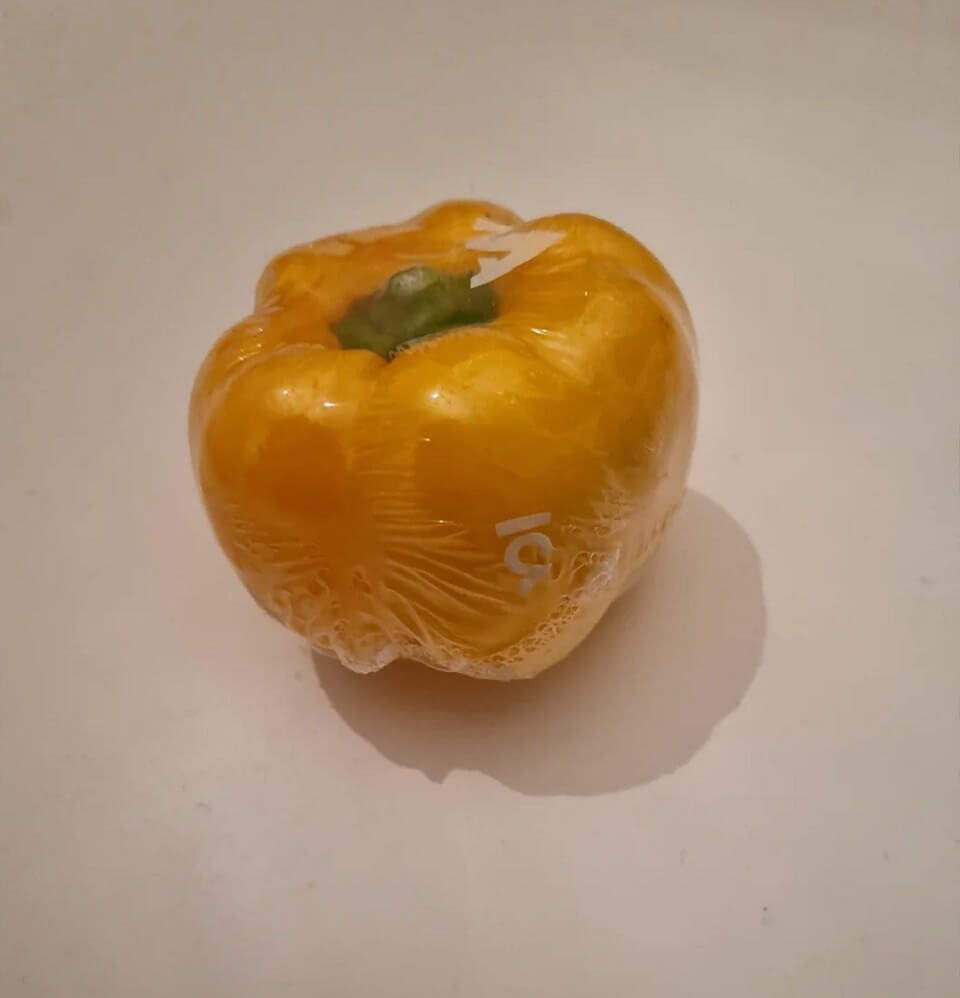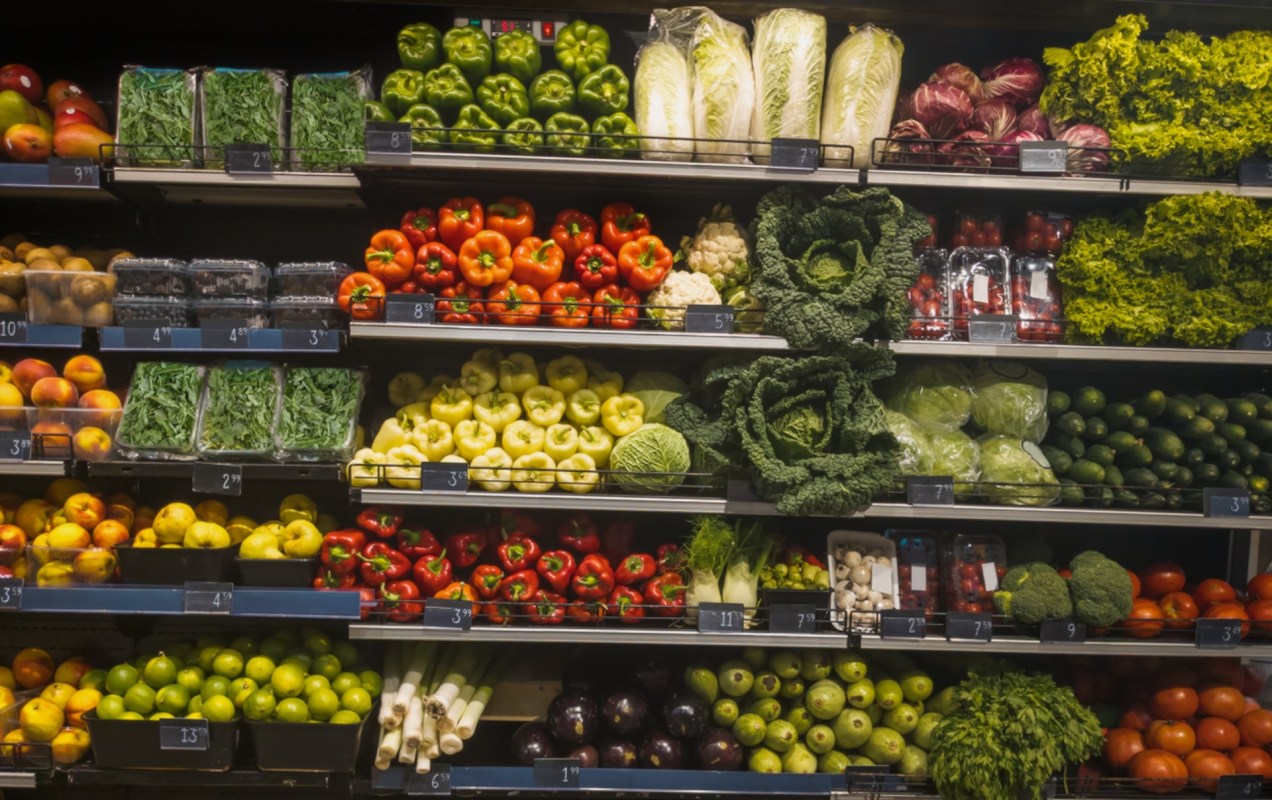More plastic packaging is making its way to the produce aisle, frustrating and confusing shoppers who were perfectly happy with unwrapped fruits and veggies.
The extra plastic is a nuisance and harms the environment, but an increasing number of companies insist on it. One shopper shared photo evidence of the trend from their local grocery store.
What happened?
The memorable photo shows a single, small yellow bell pepper. It's shrink-wrapped in clear plastic, with a few cut-off logo fragments visible on the packaging.

"It was in a bunch of peppers, most without plastic," the original poster explained in a comment. In another, they added, "They all looked the same, some with plastic, some without. They were the same peppers. There were like 100 total."
"So upsetting. Humans are outrageous," commented another user.
The OP shared the photo on a subreddit for product designs "specifically crafted to make the experience worse for the user. This can be due to greed, apathy, laziness or just downright scumbaggery."
Why does the plastic wrap matter?
Getting delicate produce out of shrink wrap without damaging it can be tricky, adding an annoying step to cooking. The plastic is also one more piece of trash a buyer has to deal with — one they likely paid extra for since it costs the provider money to wrap it, and sellers pass those costs to consumers.
Not only that, but small pieces of plastic like this are a nightmare for recycling efforts. They can't be mixed in with regular recyclables because they clog machinery and contaminate batches of other types of plastic.
That means they're more likely to end up in a landfill or in the ocean, where wildlife may try to eat them and get sick. All that plastic sheds microplastics, too, contaminating the global water supply.
Why is the company doing this?
Commenters pointed out several potential explanations for why some produce might need plastic protection.
"Honestly, after working in the produce section for several years, I get it," said one user. "Individual bell peppers turn dull and wrinkly from dehydration super fast, and it's one of those things we threw out the most, as they pretty much died overnight on the shelves."
"I don't agree with it, but a lot of times they do this with organic foods so that they don't touch non-organic foods," said another commenter.
Other users weren't as charitable. "Honestly, the only reason is for profitability. The wrap costs less per gram than the extra gram charged to the customer for the pepper," said one cynical Redditor.
What can I do to reduce unnecessary plastic packaging?
The number one source for zero-plastic, non-polluting produce is your backyard. Planting a garden lets you grow your own veggies for free, cutting back your grocery bill. Plus, it's a healthy lifestyle change.
You can also choose companies that don't wrap their produce this way. If enough people put a dent in a provider's bottom line, they'll change their practices to align with the public's preference.
Join our free newsletter for easy tips to save more, waste less, and help yourself while helping the planet.









